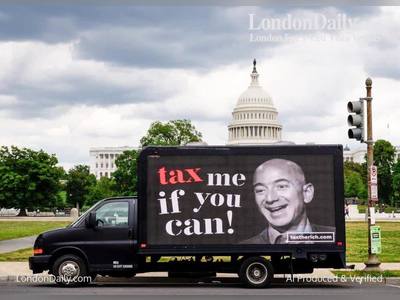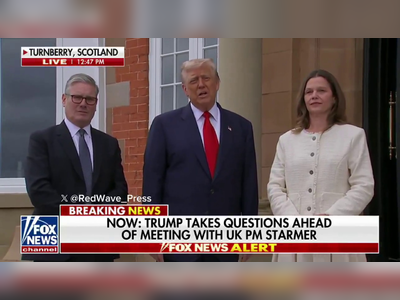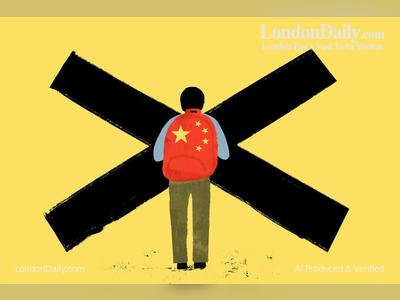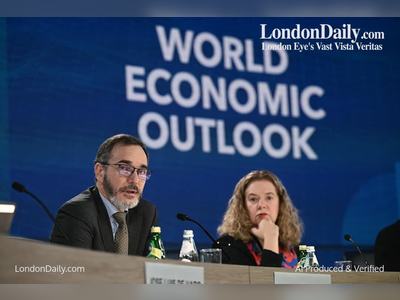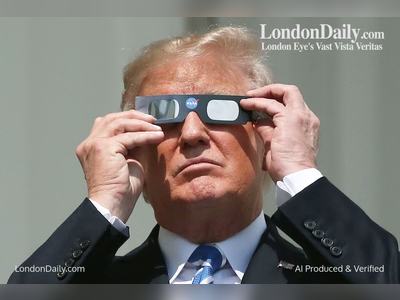Major Global Events: Ukraine-Russia Prisoner Exchange, Nuclear Talks, and Other Developments
Significant incidents from Ukraine, Iran, France, Germany, Lebanon, the UK, and South Africa.
Ukraine and Russia have conducted their largest prisoner exchange since the beginning of their conflict, with each side releasing 390 individuals, comprising both military personnel and civilians.
This exchange, the result of recent negotiations in Istanbul, represents a notable diplomatic milestone; however, no ceasefire has been established.
Reports indicate that former U.S. President Donald Trump was involved in facilitating these discussions, suggesting that the exchange could lead to further diplomatic breakthroughs.
Despite this development, military engagements continue, particularly characterized by missile strikes in Odesa and persistent clashes on the front lines.
In parallel, Iran and the United States have reported limited advancements in their ongoing nuclear negotiations, which recently convened for a fifth round in Rome.
Mediator Badr al-Busaidi from Oman indicated that some progress had been achieved, although significant disagreements remain, particularly concerning uranium enrichment practices.
The U.S. has called for a cessation of enrichment activities, while Iran maintains its stance on the right to continue.
Both parties are considering solutions, such as the establishment of a regional uranium supply consortium, to reconcile their differences.
The backdrop of heightened regional tensions and economic pressures is adding urgency to these discussions.
In France, a court has found eight individuals guilty of involvement in the 2016 armed robbery of reality television star Kim Kardashian during Paris Fashion Week.
The court handed down sentences, with the ringleader receiving eight years in prison, though five years were suspended.
Due to time served, none of those convicted will face additional imprisonment.
Kardashian, who testified about the incident's traumatic impact, expressed her appreciation to French authorities for their role in bringing the robbers to justice.
A separate incident in Hamburg, Germany, saw a stabbing attack at the city's main railway station injure at least 17 individuals, six of whom sustained life-threatening injuries.
The attack took place near a stationary train, prompting a rapid response from emergency services.
A 39-year-old woman has been arrested as the primary suspect, while authorities continue to investigate the motive of the attack, which currently shows no links to political extremism.
The incident severely disrupted train services, leading to multiple platform closures.
In Lebanon, the government has initiated a plan aimed at disarming various Palestinian factions operating within its refugee camps.
A designated committee has commenced work on establishing a timeline and mechanisms for the disarmament process.
Analysts suggest that this move may serve as a precursor to addressing the broader issue of Hezbollah’s armament, given the interconnectedness of differing armed groups in Lebanon amid ongoing regional security issues.
In the United Kingdom, following the re-election of President Donald Trump, the number of American citizens applying for British citizenship has surged, reaching over 6,100 applications in 2024.
This figure represents a 26% increase compared to the previous year and appears to be influenced by the political polarization observed in the United States, as some Americans seek stability elsewhere.
Lastly, in South Africa, political controversy has erupted following the approval of Elon Musk’s Starlink to potentially receive exemptions from Black Economic Empowerment (BEE) laws.
The Economic Freedom Fighters (EFF) party has threatened legal action, arguing that such exemptions could violate constitutional provisions and undermine national interests.
This controversy underscores the tensions between advancing technology and adhering to established economic frameworks.
This exchange, the result of recent negotiations in Istanbul, represents a notable diplomatic milestone; however, no ceasefire has been established.
Reports indicate that former U.S. President Donald Trump was involved in facilitating these discussions, suggesting that the exchange could lead to further diplomatic breakthroughs.
Despite this development, military engagements continue, particularly characterized by missile strikes in Odesa and persistent clashes on the front lines.
In parallel, Iran and the United States have reported limited advancements in their ongoing nuclear negotiations, which recently convened for a fifth round in Rome.
Mediator Badr al-Busaidi from Oman indicated that some progress had been achieved, although significant disagreements remain, particularly concerning uranium enrichment practices.
The U.S. has called for a cessation of enrichment activities, while Iran maintains its stance on the right to continue.
Both parties are considering solutions, such as the establishment of a regional uranium supply consortium, to reconcile their differences.
The backdrop of heightened regional tensions and economic pressures is adding urgency to these discussions.
In France, a court has found eight individuals guilty of involvement in the 2016 armed robbery of reality television star Kim Kardashian during Paris Fashion Week.
The court handed down sentences, with the ringleader receiving eight years in prison, though five years were suspended.
Due to time served, none of those convicted will face additional imprisonment.
Kardashian, who testified about the incident's traumatic impact, expressed her appreciation to French authorities for their role in bringing the robbers to justice.
A separate incident in Hamburg, Germany, saw a stabbing attack at the city's main railway station injure at least 17 individuals, six of whom sustained life-threatening injuries.
The attack took place near a stationary train, prompting a rapid response from emergency services.
A 39-year-old woman has been arrested as the primary suspect, while authorities continue to investigate the motive of the attack, which currently shows no links to political extremism.
The incident severely disrupted train services, leading to multiple platform closures.
In Lebanon, the government has initiated a plan aimed at disarming various Palestinian factions operating within its refugee camps.
A designated committee has commenced work on establishing a timeline and mechanisms for the disarmament process.
Analysts suggest that this move may serve as a precursor to addressing the broader issue of Hezbollah’s armament, given the interconnectedness of differing armed groups in Lebanon amid ongoing regional security issues.
In the United Kingdom, following the re-election of President Donald Trump, the number of American citizens applying for British citizenship has surged, reaching over 6,100 applications in 2024.
This figure represents a 26% increase compared to the previous year and appears to be influenced by the political polarization observed in the United States, as some Americans seek stability elsewhere.
Lastly, in South Africa, political controversy has erupted following the approval of Elon Musk’s Starlink to potentially receive exemptions from Black Economic Empowerment (BEE) laws.
The Economic Freedom Fighters (EFF) party has threatened legal action, arguing that such exemptions could violate constitutional provisions and undermine national interests.
This controversy underscores the tensions between advancing technology and adhering to established economic frameworks.

